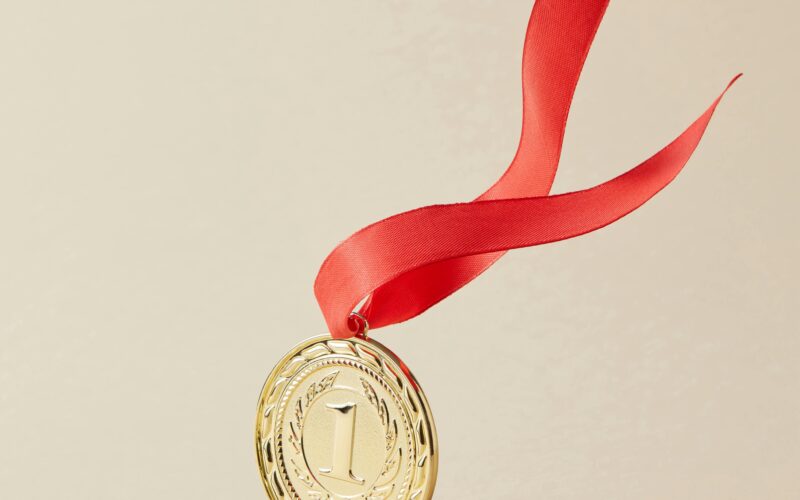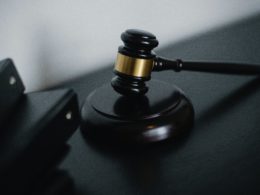Brooklyn Law School’s Entertainment & Sports Law Society (BESLS) recently hosted its fourth annual Sports Law Symposium, bringing in a diverse group of panelists to explore the many legal complexities of international sports. Themed “Global Sport: Legal Lessons from the Olympic Games,” the symposium featured multiple panels, including Guarding the Goal Line: Protecting Competition Integrity, diving into some of the most pressing issues around fairness and justice in Olympic and global athletic competitions.
The panelists included Matthew Kaiser of Global Sports Advocates, Jill Pilgrim, founder of Pilgrim and Associates, and Jeffrey Rosenthal, partner at Cleary Gottlieb and a seasoned arbitrator with the Court of Arbitration for Sport (CAS). The conversation was moderated by Robert Boland, an Assistant Professor of Law at Seton Hall Law School and former Athletics Integrity Officer at Penn State. With his extensive background in athletic representation, Professor Boland navigated discussions on the evolving landscape of competition integrity, including the latest trends in doping, fair competition, and gender-related challenges in sports.
Competition Integrity and New Challenges
Each panelist reflected on the shifting priorities in safeguarding fairness and the broader concept of “competition integrity.” Jeffrey Rosenthal noted that while doping has always been a concern, it has evolved in both methods of cheating and the technologies used to detect violations, such as biometric passports. Mr. Rosenthal added transgender athletes and sports betting are two other apparent issues challenging traditional notions of fairness in the Olympics and NCAA competitions.
Jill Pilgrim provided a definition: integrity in sports is fundamentally about an even playing field and fair competition. While the specifics vary across different sports, she argued that the essence of sports lies in fairness—athletes must start “with their toes behind the line,” so to speak, for the spirit of fair competition to thrive.
The Appeals Process and CAS Jurisdiction
Ms. Pilgrim noted that the International Olympic Committee (IOC) mandates CAS as the sole body to hear disputes during the Olympics, underscoring the close relationship between CAS and the IOC, which ensures that CAS remains the go-to authority for disputes throughout the Games.
An essential aspect of protecting integrity is the right to appeal, particularly for athletes contesting doping violations. Matthew Kaiser explained that appeals typically begin at the national level for U.S. athletes. However, high-profile athletes can escalate appeals to CAS, the Switzerland-based arbitral body for international sport. Mr. Rosenthal described CAS’s unique closed-arbitration system and illustrated its authority on international sporting disputes. In U.S. professional sports leagues like the National Hockey League (NHL), disputes are handled by league-specific arbitration panels, while CAS jurisdiction primarily within Olympic and European sports contexts.
Athlete Advocacy and Jurisdictional Complexities
Mr. Kaiser emphasized the importance of educating the athletes he represents on the CAS adjudication process and its binding nature. For many athletes, accepting CAS’s jurisdiction is part of the broader framework of participating in major competitions—a reality that leaves athletes with limited options if they disagree with CAS’s processes. Mr. Kaiser pointed out the high burden on athletes to maintain control over what goes into their bodies, particularly as doping tests become more sophisticated and evidence-based, such as biological passports, which track biomarkers over time instead of detecting a singular drug.
Technological Innovations and Bio-Passport Programs
The advent of biological passports, which track biomarkers over time, has transformed doping detection. Mr. Rosenthal explained that modern testing goes beyond identifying banned substances; it monitors physiological patterns that indicate whether an athlete has used performance-enhancing drugs over the years. This approach raises ethical concerns in the Paralympics, where athletes may require certain banned substances for health reasons, challenging fair exemption practices without compromising competition integrity.
Mr. Kaiser highlighted these developments require athletes to be vigilant, not only about banned substances but also about benign substances that may lead to positive test results. This new “bio-passport” method offers a more nuanced but challenging perspective on doping and sports integrity.
Gender and Genetic Testing in Sports
Another key focus was the complexities of gender identity and testing in athletics. Historically, the Olympics enforced gender tests—examinations used to verify an athlete’s sex through physical exams—and while testing has evolved to account for gender diversity, questions remain about competition fairness. Drawing from her experience with international athletics governance, Ms. Pilgrim argued that gender-related eligibility is often context-dependent. She acknowledged that while publicly funded sports programs should not exclude transgender athletes, private organizations might face unique challenges depending on the sport and level of competition.
Mr. Rosenthal elaborated on the challenges of enforcing gender-based classifications in sports, citing cases like those of South African athlete Caster Semenya. Semenya’s naturally high testosterone levels highlight the complexities of categorizing athletes solely by traditional gender norms. Rulings on such cases have varied across international legal and athletic bodies, underscoring the ongoing debate over fair competition and biological diversity in sports. Rulings on such cases have varied across international legal and athletic bodies, illustrating the ongoing discussion around fair competition and biological diversity in sports.
The Critical Role of Rules and Timing in Fair Adjudication
The panel also addressed the procedural rigor essential to upholding fairness, particularly in Olympic adjudications. Ms. Pilgrim emphasized that integrity depends on consistently enforcing deadlines and rules—a stance highlighted by recent Olympic cases where appeals were denied due to minor timing issues. She likened sports regulations to legal statutes, with clear boundaries that prevent chaos and ensure that every athlete competes under the same rules. In sports, just as in law, even minor infractions can significantly impact outcomes. Mr. Rosenthal concurred, noting that timely appeals are critical to maintain the integrity of results and that enforcing these rules fosters trust and stability in international sports governance.
Conclusion
Brooklyn Law School’s symposium shed light on the multifaceted role of law in maintaining the integrity of global sports. As the athletics industry faces new challenges, from technological advances in doping detection to shifting perspectives on gender identity, the legal frameworks and governing bodies overseeing sports continue to evolve. The panelists underscored the essential role of consistency, fairness, and technological adaptation in upholding integrity, ensuring that athletes and fans alike can trust the outcomes of competitions on the world stage. The discussion left attendees with a greater appreciation for the work required to protect competition integrity, especially in the high-stakes environment of the Olympics.
Thank you to our amazing moderator, panelists, and attendees for making this year’s Sports Symposium truly incredible!
Article By: Camile Alvarez
Camile is a 2025 J.D. Candidate at Brooklyn Law School




